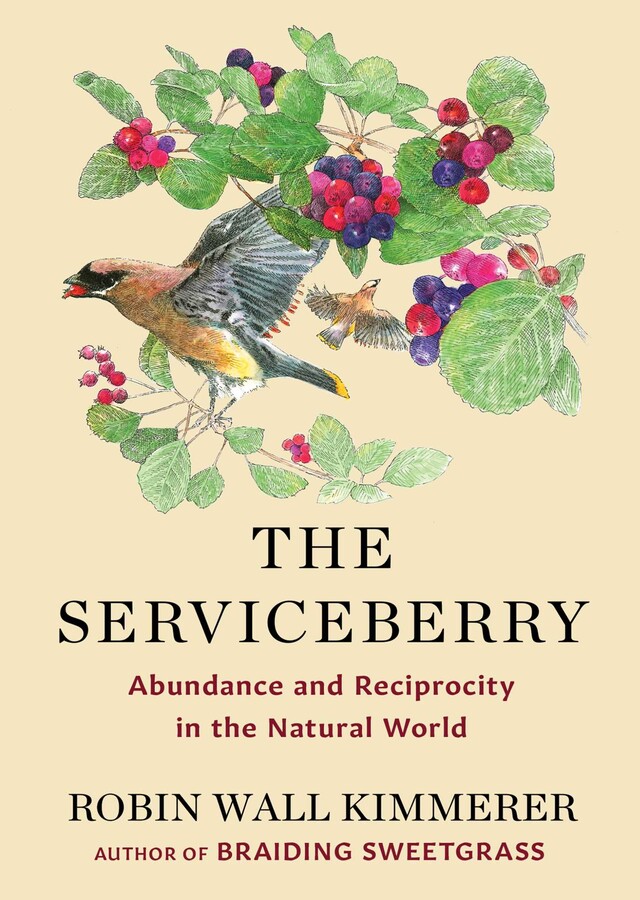Review by Kristine Johnson

I had the privilege of hearing a conversation between beloved author and Indigenous scientist Robin Wall Kimmerer and renowned Colorado poet Camille Dungy about Kimmerer’s new book, The Serviceberry, at a reading in Boulder in December. I have been thinking about the book ever since, thrusting my copy onto others to read. Why the enthusiasm? Simply put, The Serviceberry is the right book for right now. In the cold and dark of Winter 2025, many of us are facing uncertainty, loss, and division and may be seeking a path forward to light. While this book nominally might describe a beloved native plant that you definitely want in your yard, Kimmerer goes much deeper. The true theme of this book is reciprocity and the gift economy.
Kimmerer contrasts what plants, like the serviceberry, can do for us: they take the energy of the sun and transform it into berries which they give to the world freely, thereby supporting and participating in ecosystems. Our modern ethos, on the other hand, tilts toward a different economy; we focus too intently on concepts like scarcity, supply and demand and hoarding. Our precious world, aching from natural disasters and strife of a dozen varieties, could use more of the gift economy modeled by the serviceberry, by Indigenous practices and by the generosity we find in building connections and communities with others. All of these sustain and support nature, biodiversity and even ourselves.
It occurs to me, that is what we do in our Wild Ones chapter. Our sharing of seeds, plants, knowledge, advice and friendship, encapsulates a beautiful example of a gift economy. While membership fees and donations do help, in the Wild Ones Front Range Chapter, we exchange a wealth of gifts throughout the seasons. I encourage you to read this book, possibly even my copy if you happen to run into me. The Serviceberry contains a message that we are carrying forward through our regions and our gardens.
